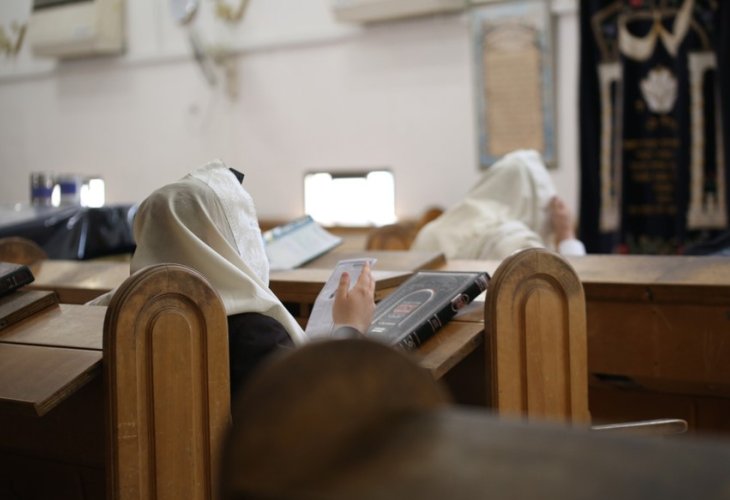Personal Stories
When Shabbat Is Sold for a Donation: A Story of Integrity, Sanctity, and Consequences
An attempted fundraising tactic on Shabbat backfires and prompts a halachic ruling from the late Rabbi Chaim Kanievsky
 (Photo: shutterstock)
(Photo: shutterstock)A Costly Mistake: Recording on Shabbat
One Shabbat, a wealthy Jewish man attended a synagogue in the United States. Recognizing him, the gabbai (synagogue manager) honored him with the sixth aliyah. Following the Torah reading, the gabbai recited a traditional Mi Shebeirach prayer for the man, and, as is customary, the man pledged a generous donation to the synagogue.
A few days later, the donor returned to settle his pledge. “I think I pledged $200,” he said. The gabbai replied that he wasn’t certain of the exact amount but was sure it had been higher. He then pulled the man aside and said, “Let me share a secret. This isn’t the first time we’ve had this kind of misunderstanding, so I’ve made sure to record all pledges in case of disputes.”
To the man’s astonishment, the gabbai reached under the synagogue’s bimah (lectern), retrieved a recording device, and played back the Mi Shebeirach. The recording clearly captured the donor pledging $500.
Furious, the donor declared the entire donation invalid. “A synagogue that desecrates Shabbat for money does not deserve my support,” he said. “Had I known I was being recorded on Shabbat, I would never have accepted an aliyah here.” He tore up the $200 check he had originally offered and left.
A Question of Halacha: Is the Donation Binding?
Later, the man began to question whether his pledge might still be halachically binding. After all, though what the gabbai did was clearly wrong, did that mean that the congregants should be deprived of a donation?
The case was brought before Rabbi Yitzchak Zilberstein, who in turn presented it to the late Rabbi Chaim Kanievsky. Rabbi Kanievsky ruled that the donor was not obligated to pay a cent. Since the pledge was made unknowingly during a prohibited recording on Shabbat, it was nullified. Had the man known, he would never have agreed to the aliyah.
Furthermore, Rabbi Kanievsky added that if it was indeed the gabbai who activated the device, he could be held liable for the synagogue’s financial loss. Because his Shabbat desecration directly caused the withdrawal of the donation, he might be obligated, at least according to dinei shamayim (heavenly judgment), to compensate the synagogue for the loss. Even though indirect damage (grama) is not punishable in human courts, it is not overlooked in the heavenly court.
On another occasion, Rabbi Kanievsky noted that if the other congregants were just as shocked by the Shabbat violation as the donor, then the donor’s blessing was valid, and the congregation fulfilled its obligation through it. In such a case, he ruled, the donation is owed to the synagogue, and the gabbai would require kaparah (atonement) for his actions.
This article originally appeared in Hebrew in the 'Kol Berama' newsletter produced in Ramat Elchanan.

